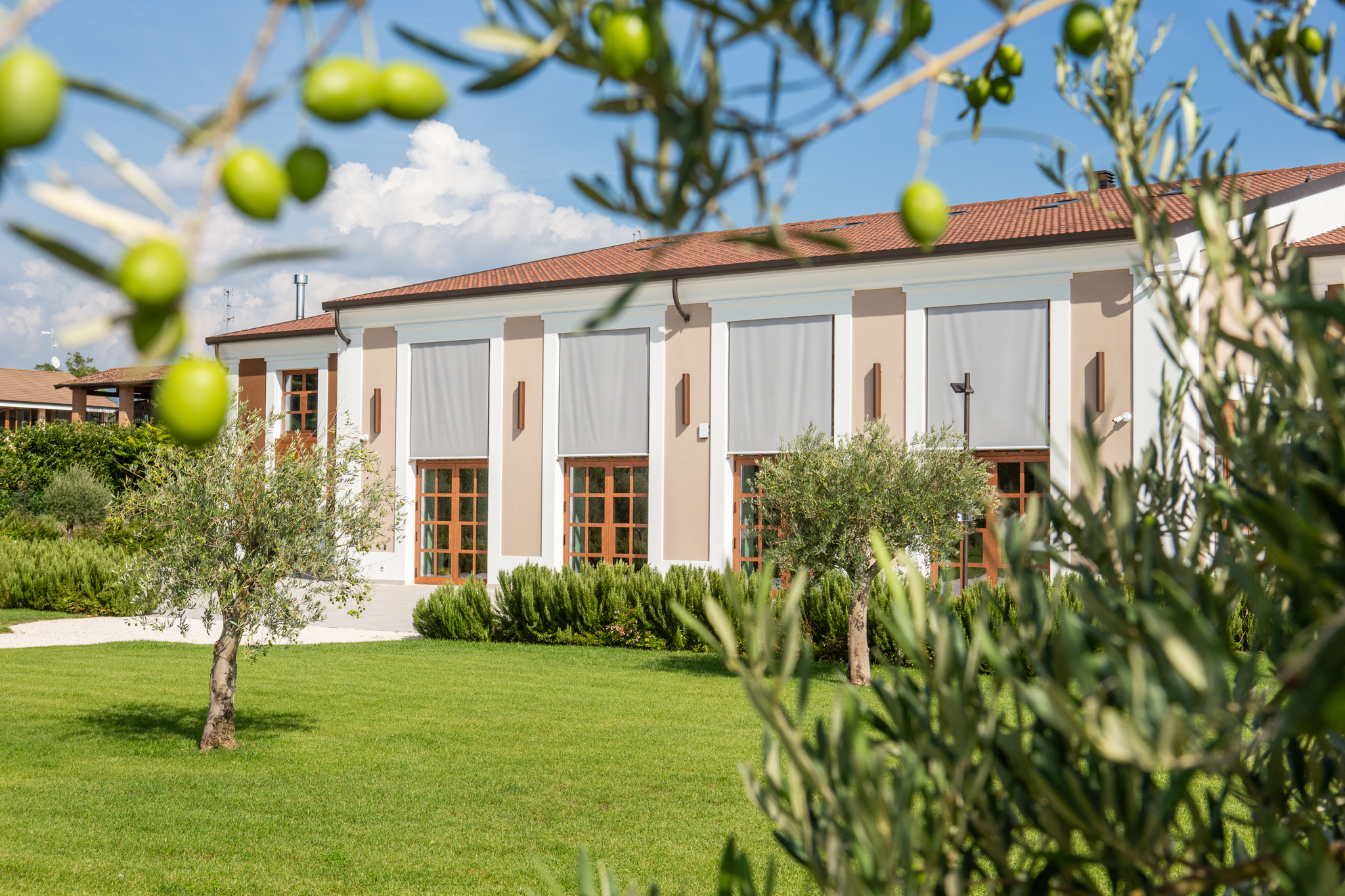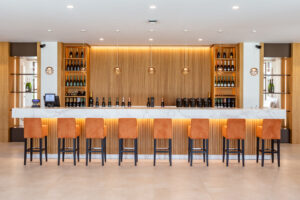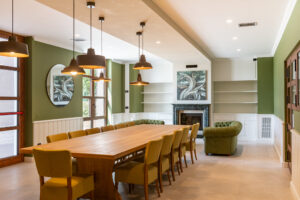Five generations devote to Franciacorta
In the hilly area embracing Lake Iseo, in the Passirano area, Le Marchesine winery represents an entrepreneurial example able to look at Franciacorta terroir with a personal vision born far long time. For five generations, the Biatta family has been engaged in viticulture based on knowledge, on experience gained harvest after harvest. Today, Loris and his children Alice and Andrea manage 47 hectares of vineyards vinifying almost 450 thousand bottles. Figures that make Le Marchesine of the main players in the denomination. A major expansion of the vineyard estate took place in 1985 with the acquisition of new land with the aim of both expanding and having a greater choice of grapes and therefore taste of soil, all in order to produce more complex Franciacorta wines. Without losing what is the winery’s signature style: elegance, freshness and great cleanliness.
- Family Biatta.
A new winery: hospitality, sustainability and production
Eight million euros is the investment made by Biatta, which is focusing on hospitality and positioning its brand on other targets as well, from business to tourism, offering a totally renovated visitor route after four years of works. A renovation that envisages 3,500 square metres in the basement, 1,800 square metres on the surface and 800 on four floors for the reception area destined for the tasting room, meeting and conference room for companies that will decide to set up their team building in this location. A project that allows further improvements also for wine production, which is already of a high standard, but can now increase and improve more and more. Thanks a huge space for the bottle ageing and the remuage operations done by the gyropallet system. The aim is to break through the roof of 700 thousand bottles in the next three years due to the additional 10 hectares of land recently acquired in Paderno area.
Sustainability, an issue that is very much in the spotlight today, passes through the desire to reduce energy consumption.
Le Marchesine, by a large photovoltaic system, is self-sufficient for 80% of its energy. ‘This is an important project, which implements many green values and sustainable development,‘ said Loris Biatta.





